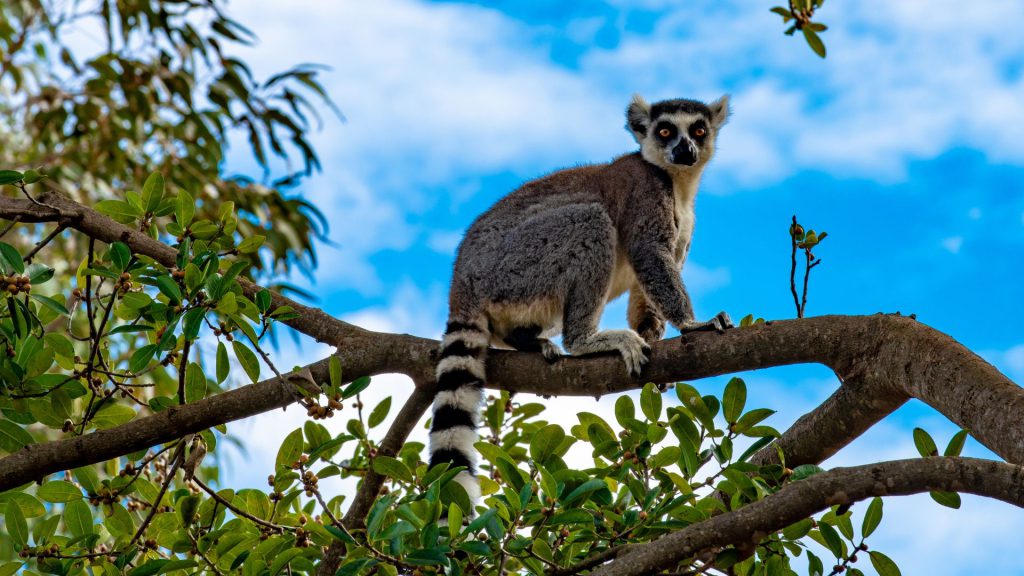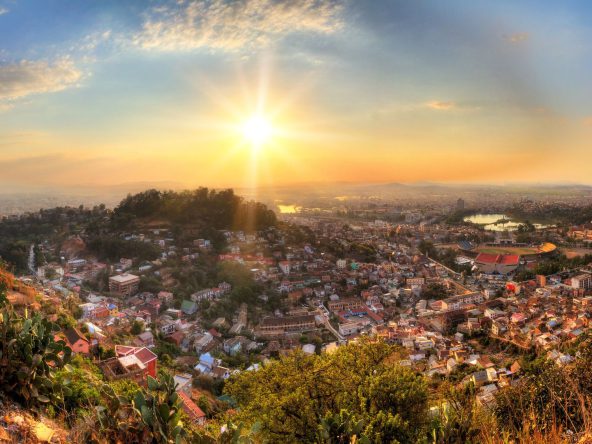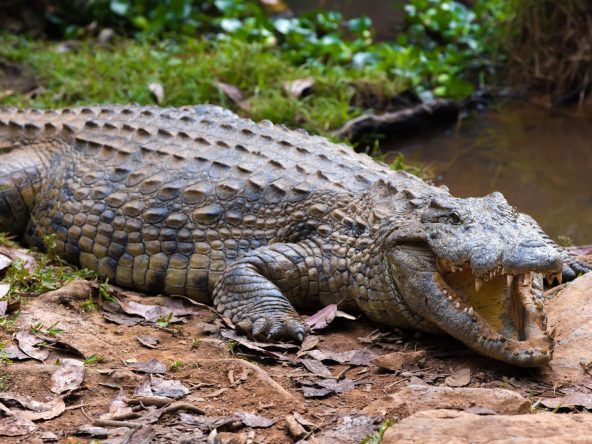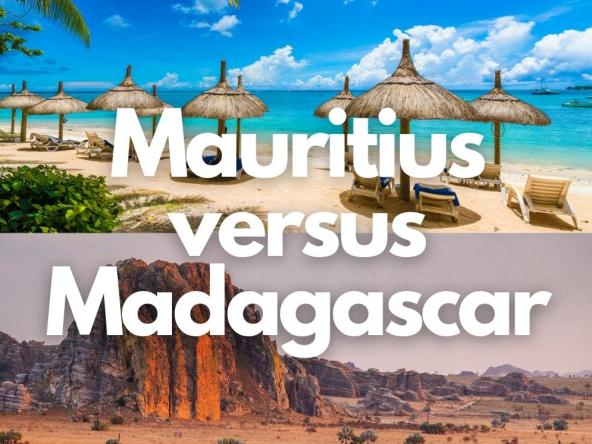Introduction
Determining the safety of a country is complex and influenced by various factors such as personal preferences and comfort with unfamiliar places.
In this article, we ask the question: “is Madagascar safe?” and aim to address the most common safety concerns, focusing on aspects relevant to expats exploring the unique island of Madagascar.
Understand the landscape
Often referred to as one of the “poorest” countries in the world, Madagascar raises security concerns.
Countries facing economic challenges tend to have higher crime rates. While caution is advisable in any foreign country, Madagascar seems safer than others with similar socio-economic status. This fact came as a surprise to me when I had the opportunity to live in rural Madagascar for two years as a Peace Corps volunteer.
Americans who serve as Peace Corps volunteers receive extensive training in local language and cultural integration to help mitigate risks during our time serving Malagasy communities. After completing the extensive 3 months of training, I felt very safe living in my community, even without access to the same resources or safety systems that we have available here in the United States.
This was due to the fact that I felt very supported by my community and local Malagasy counterparts who were willing to advocate on my behalf. Many Malagasy people consider it an honor when foreigners come from their country and are willing to try their best and adapt to the local Malagasy lifestyle and culture.
Although my experience in Madagascar has been a very positive one where I have been able to mitigate and de-escalate most of the security risks. There are still common crimes that occur. For example, if you are traveling in the capital city of Antananarivo, you need to be especially careful about being mugged or pickpocketed at night.
Many of the people who commit crimes in Madagascar are very clever and unsuspecting victims may not realize that their belongings have been stolen, as was the case with me when I was pickpocketed while shopping at the local market in Analakely.
Important Note: In addition to man-made crimes, Madagascar’s native animal, the Lemur (especially the Common Brown lemur and the Ring-tailed lemur), found in many reserves —where they often roam freely—have become accustomed to tourists and have figured out the perfect opportunities when to enter bungalows in local hotels and steal personal belongings (mostly food).
I have personally experienced lemurs ransacking my luggage, finding travel snacks and eating most of them. It is advisable to ensure that all belongings and bungalows are securely closed when staying in these reserves.

Common Crimes
According to the U.S. State Department’s travel advisory, Madagascar has a Level 2 status, which advises travelers to exercise “increased caution” when visiting the island. However, most crimes are nonviolent, such as pickpocketing, and occur primarily in urban and crowded areas. Violent crimes, such as armed robbery, are more common after dark, in remote areas, and along major national roads in certain regions.
Areas at high risk for violent crime include:
- Some parts of Antananarivo: 67 ha, Isotry, Ankazomanga, Anosibe, Anosizato and Analakely.
- Some parts Toamasina and Mahajanga
- Deep South of Madagascar: Amboasary, Betioky, and Ambovombe.
- Batterie Beach, north of Toliara (Tuléar)
- Morondava city and surrounding areas.
When traveling to high-risk areas, it is recommended that you do not walk around with valuables such as smartphones, credit cards, large sums of cash and other valuables.
In addition, security or police escorts are recommended when traveling to high-risk rural areas or at night in urban areas. This can be arranged through the local Malagasy police or private security companies such as G4S (the security firm used by US Embassy, United Nations and other International NGOs).
Safety for Women
Solo female travel is not uncommon in Madagascar, but it is important to exercise caution in high risk areas and urban areas after dark. To ensure a safe experience, it is highly recommended to use local guides or travel agencies, especially for those traveling on leisure or for short stays.
It has been reported that women who travel alone in Madagascar may encounter instances of catcalling and other forms of harassment, particularly young women. It is also important to note that women are also often targets or pickpockets or purse snatchers. Foreigners who are able to blend in with the local population may be less likely to experience such incidents.

In my experience as a black Peace Corps volunteer who blended in with the local Malagasy population, I also experienced a similar degree of sexual harassment as local Malagasy women do, from both locals and other tourists who visit the island for sexual tourism.
It is recommended that women exercise caution when socializing, drinking, and going to local bars and nightclubs, as is the case in most countries, including the United States. Expats residing in Madagascar for an extended period or permanently may find it helpful to acquire a basic understanding of Malagasy language skills. This can aid in their comprehension of the local environment and contribute to their safety, particularly if they are living alone.
Tips for navigating Madagascar – safely
- Understand local customs and culture:
It is important to respect local customs. Certain places are considered sacred, and following guidelines, such as not eating pork in certain places, is essential. Consulting trusted locals, travel guides and expats will provide valuable insights before traveling to certain regions.
- Dress codes:
The dress code in Madagascar is modest and conservative. It is advisable to wear comfortable clothing that covers the body, as locals appreciate conservative dress codes, especially in rural areas.
- Social media etiquette:
Limiting personal information on social media is recommended to prevent criminals from using it for malicious purposes. For example, Most robberies occur when homes or hotel rooms are left unattended when individuals are away on vacation.Social media is often used to determine the right timing when to rob or attack an individual.
- Build community:
Connecting with expat communities and trusted locals is essential for staying informed about current events and safety. It can also make your experience more memorable and provide more opportunities for cultural integration. Joining verified Facebook groups can be useful for those relocating to Madagascar.
It is advisable to start building these partnerships before traveling to Madagascar. For those relocating permanently to Madagascar, building relationships with local leaders and authorities can help ensure your safety.
In my case, when I relocated to my community in rural Madagascar, I and my local counterpart made courtesy visits to the mayor, tribal leaders, and local police to make them aware of my presence in the community.
In addition, I found it very helpful to interact and build relationships with neighbors who were very helpful in providing information and making sure my home was safe while I was away.
Health and Medical Precautions
Immunizations/Health Checks
Malaria and other mosquito borne illnesses are common, especially in rural areas. Using a malaria prophylaxis is recommended especially when traveling to remote areas. Regular health checks and vaccinations are essential for travelers and expats.
Safe drinking water
Avoid drinking tap water due to the risk of waterborne diseases. Stick to bottled water or properly treated alternatives such as boiling water and adding a water cleansing agent such as chlorine.
Local Hospitals and Clinics:
Public hospitals and rural clinics are often limited in resources and access to qualified medical professionals to treat common illnesses may be limited. It is recommended to visit private clinics or hospitals that are experienced with treating expats. Please click this link for a list of recommended clinics and hospitals by the US Embassy in Madagascar.
Transportation
When using public transportation or driving in Madagascar, it is advisable to exercise caution. Rental cars often come with an experienced driver that knows how to navigate the complex unpaved road networks of Madagascar. It is worth noting that rural roads may be inadequately marked, and conditions may deteriorate during the rainy season. It is also advisable to avoid public transport at night, especially on national roads, as armed robberies are common at this time.
Conclusion
Madagascar is generally considered a safe destination for visitors who follow safety guidelines and avoid high-risk areas.
It is worth noting that tourists and expats are welcomed by the Malagasy people, who greatly benefit from their contributions to local economies. Additionally, Madagascar’s natural beauty makes it an enjoyable destination to visit or relocate permanently.
By staying informed and taking appropriate precautions, expats can safely enjoy all that Madagascar has to offer while becoming part of a community with a beautiful and welcoming culture.





